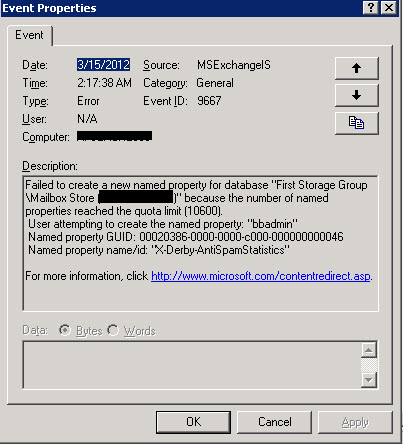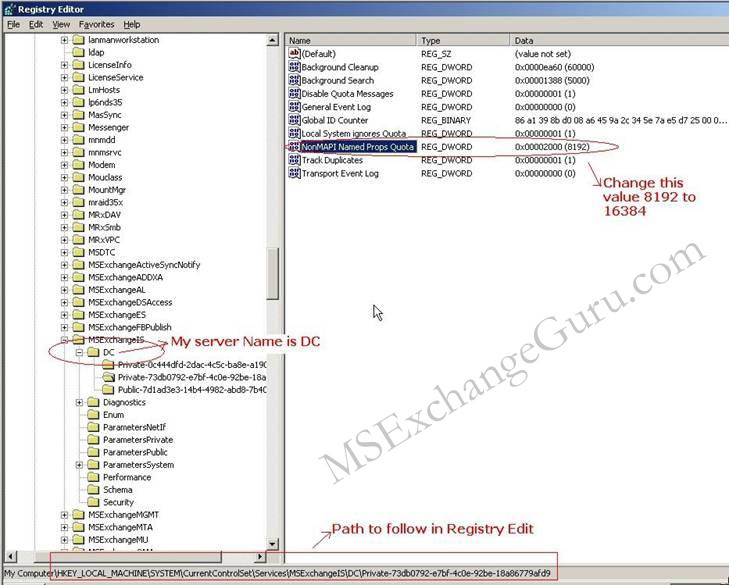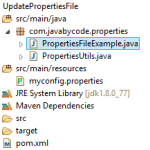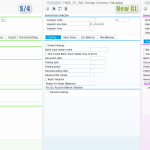Table of Contents
You may encounter an error code indicating properties named with exchange Event ID 9667. As it happens, there are various ways to work around this issue, so we’ll get to that in a moment.
Approved
HOW TO SOLVE Event 9667 in Exchange 2003 CHANGE: NAMED PROPERTIES
The Microsoft Exchange Information Store service maintains a table of job properties for each database. By default, Exchange Server 2003 Exchange and 2007 server have a fixed quota of 16,000 named properties or identical identifiers per MDB. Most likely, you will use this registry value after the final application of Exchange Server 2003 Service Pack 2. The default value most commonly associated with the registry value is 8000.
The only way for properties to be “deleted” is to move them to a new store. The workaround to increase is the naming level of the manual properties. If

Beyond 8000, all 9667 parts will be created by default, as shown below compared to the example:
Event Type: Error
Event Source: MSExchangeIS
Event Category: General
Event ID: 9667
Date: 2009-08-19
Time: 14:27:35
> > User: N/A
Computer: EXCHANGE03
Description: Failed to create new named property in database ‘First Group StorageMailbox Store (EXCHANGE03)’ because the number of named houses reached limit value. quota limit (8192).
The user tried to create a property named: in “SYSTEM”
Named property GUID: 00020386-0000-0000-c000-000000000046
There may be multiple storage GUIDs in the registry, as shown in the figure, which reduces the weight of the storage. You need to make sure that this is the right courier company for the most important changes. You can compare the base value of the ObjectGUID file with the ADSIEdit.msc for that particular mailbox store.
This example can be described as follows:
You can see two entries in your registry:
— ObjectGUID 1E 81 6A 2007 C3 2D 19 49 AE E6 F2 AE 8E C1 CE E4 matches the second body called Private-6a08811e-2dc3-4919-aee6-f2ae8ec1cee4
You can also create a NamedProps mailbox store using the MFCMAPI tool.
1. Open MFCMAPI and connect to a mailbox in modified storage mode [profile without caching].
2.Click To Mailboxes in Lite-Top. On the menu bar, click Properties, Actions, Scope and then Search All Named Accessories.
3. top Change the bound to 0x0000FFFF to get all properties using rangezones
4. In the bar, click the Properties panel menu, click Advanced to change the properties, and then click OK.
5. The bottom inner panel of the MFCMAPI window now contains all the named properties. You can model accordingly.
IMP: A person must complete all of the steps in the following sections of the procedure to also set frequently enumerated properties. configure a Required quota for branded properties, a quota for certain types of non-MAPI names and properties, a quota for replica IDs. make To make changes, do the following:
1 hit. Launch Registry Editor, then navigate to the server’s registry where the database you want to configure is located.
STEP 2. Locate the following registry
subsection: STEP 3. You set the quota for the specified properties. To do this, follow these
Actions: a. Right-click
B. Rename the Named dword Quota props.
against. Right-click Quota on the named property, select Edit.
. In the Value Book Data field, enter a valid integer between 1 and 0x7fff, if yes, click OK.
4 steps. Set permissions on non-MAPI named properties from . Follow these steps to donate
is: a. Right-click

B. Name the new DWORD Props value with nonmapi Quota.
Approved
The ASR Pro repair tool is the solution for a Windows PC that's running slowly, has registry issues, or is infected with malware. This powerful and easy-to-use tool can quickly diagnose and fix your PC, increasing performance, optimizing memory, and improving security in the process. Don't suffer from a sluggish computer any longer - try ASR Pro today!

c.Right-click the non-MAPI Quota prop and select Edit.
chemical. In the Value text data system, enter a positive integer from 0x7FFF to one, click OK.
STEP 5. Set up a quota for most replica IDs. For follow this this
Steps: a. Right-click From
B. Name the new DWORD value Quota replid.
against. Right-click Replica Quota and select Edit Command.
The software to fix your PC is just a click away - download it now.




